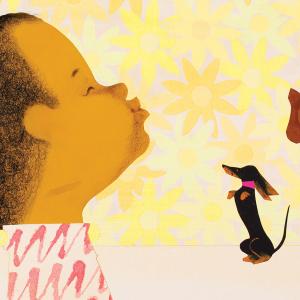
Mitali Perkins (mitaliperkins.com) has written 10 novels for young readers, including Rickshaw Girl (chosen by the New York Public Library as one of the top 100 books for children in the past 100 years) and Bamboo People (an American Library Association's Top Ten Novels for Young Adults, starred in Publishers Weekly as "a graceful exploration of the redemptive power of love, family, and friendship.") Her newest is You Bring the Distant Near, releasing fall 2017 from Farrar, Strauss, and Giroux Books for Younger Readers. She has been honored as a "Most Engaging Author" by independent booksellers across the country and selected as a "Literary Light for Children" by the Associates of the Boston Public Library. Mitali was born in Kolkata, India before immigrating to the Bay Area with her family. She has lived in Bangladesh, India, England, Thailand, Mexico, Cameroon, and Ghana, studied at Stanford and U.C. Berkeley, and currently resides in the East Bay where she is an Adjunct Associate Professor at Saint Mary's College of California.
Posts By This Author
Stories for All God's Children
Paying attention to race and power in children's books.
WHEN I ROAMED the Flushing Public Library as an immigrant child, I encountered mirrors and windows—in Little Women, Jo loved her sisters as I did mine; in A Little Princess, Sara Crewe’s heart for the disenfranchised stirred me to compassion; and in Anne of Green Gables, I found another child who loved to write.
It didn’t strike me until later that I never encountered a hero who reflected my ethnicity or brown skin. If Indian culture showed up at all, it was portrayed negatively, as in The Secret Garden, where Indians were described as “natives” and “pigs.” In another book, a lone Indian character was a mysterious servant without any back story. I still reread those two books regularly and know they were crucial in my formation. But I wonder if their portrayal of my ethnicity underlined the truth that my Indian-ness was a liability in wider culture. It took years for me to be grateful, instead of ashamed, about being Bengali. A good book or two with a Bengali protagonist might have helped.
Stories are powerful, and Jesus modeled storytelling that changes the hearer for good. But other stories can be propaganda that causes us to hate or fear the “other.” Jesus raged at those who harm children by causing them to sin: “It would be better for you to have a large millstone tied around your neck.”
When it comes to race and power in books for children, questions abound. Must I have experienced the same lack of privilege as my main character to tell her story? When is storytelling a form of cultural exchange and when does it disintegrate into cultural appropriation? Does the fear of making a “fatal flaw” hinder creativity? Who decides that a story should be kept from children because it might teach them to hate the “other” or even themselves? Does this kind of protection violate freedom of expression?
